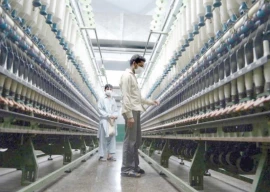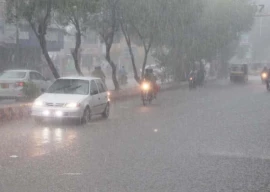The amount of money spent on international aid is meager at best. With richer nations still struggling to allocate at least 0.7 per cent of their gross national incomes for aid, it is necessary to consider how the provision of this limited amount of aid can be made more cost-efficient and effective.
Prior to focusing on making aid more effective, it should be noted that there are several compelling reasons for richer countries aiding poorer ones. Besides the need to compensate for centuries of colonial exploitation, aid provision can help avert conflicts, and better contend with disasters linked to climate changes caused by the industrialised north.
To help secure longstanding development goals related to literacy, health, or income generation, the overstretched and resource constrained international aid system needs to rethink how aid is delivered. Localisation has potential to make aid delivery more relevant and effective.
The idea of localising aid delivery is not new. The need for aid utilisation to be made participatory has been recognised for decades. In 2016, a UN conference pledged to allocate a quarter of all humanitarian funds to local responders by 2020. Yet, just 1.2% of funds allocated for humanitarian purposes went to local organisations in 2022, according to Development Initiatives.
The idea of localising aid for humanitarian assistance as well as for development purposes gained some traction during the Covid-19 pandemic, when aid agencies were compelled to rely on local partners due to lockdowns and travel restrictions. The US Agency for International Development is now trying to allocate a quarter of its funding to local development actors by 2025, and half of it by 2050. The UK government has also pledged to deliver more aid to poor countries through local entities. International NGOs have begun ascribing to the need for greater aid localisation too.
However, many aid agencies have been under the sway of neoliberal policies for decades, and their capacity to directly supervise and support local NGOs has diminished. Donors increasingly rely on development consultancies which run like corporate enterprises in the name of providing basic services to disenfranchised communities around the world. Even when bilateral and multilateral agencies like the UN system funnel funding through NGOs, they prefer giving aid to NGOs headquartered in their own countries, which then channel money to local NGOs.
Localisation can help make the aid system less top-down. But aid agencies should not just subcontract provision of already formulated initiatives to local NGOs. Instead, local NGOs should be able to help formulate development efforts as well.
It is hard to deny that local NGOs have far lesser overheads than UN agencies or international NGOs. Local organisations often have greater legitimacy and more knowledge of on-ground contexts. However, there are legitimate fears of corruption and the lack of capacity within local organisations. Yet, an overemphasis on adhering to strict accountability guidelines formulated by donor agencies can also become cumbersome. These convoluted reporting requirements can compel local organisations to spend undue time and effort preparing reports, instead of focusing on implementing projects meant to make lives easier for ordinary people.
Donors, UN agencies and international NGOs can step up efforts to bolster context specific accountability processes and building technical capabilities of local organisations. International development actors can further help amplify the voices of their local counterparts to lobby governments and international agencies to make policy changes needed to address underlying causes of marginalisation and deprivation. However, local organisations must be allowed the chance to design, manage, and deliver aid projects and programmes within their own countries.
Published in The Express Tribune, May 24th, 2024.
Like Opinion & Editorial on Facebook, follow @ETOpEd on Twitter to receive all updates on all our daily pieces.









1717844490-0/BeFunky-collage-(5)1717844490-0-270x192.webp)



COMMENTS
Comments are moderated and generally will be posted if they are on-topic and not abusive.
For more information, please see our Comments FAQ